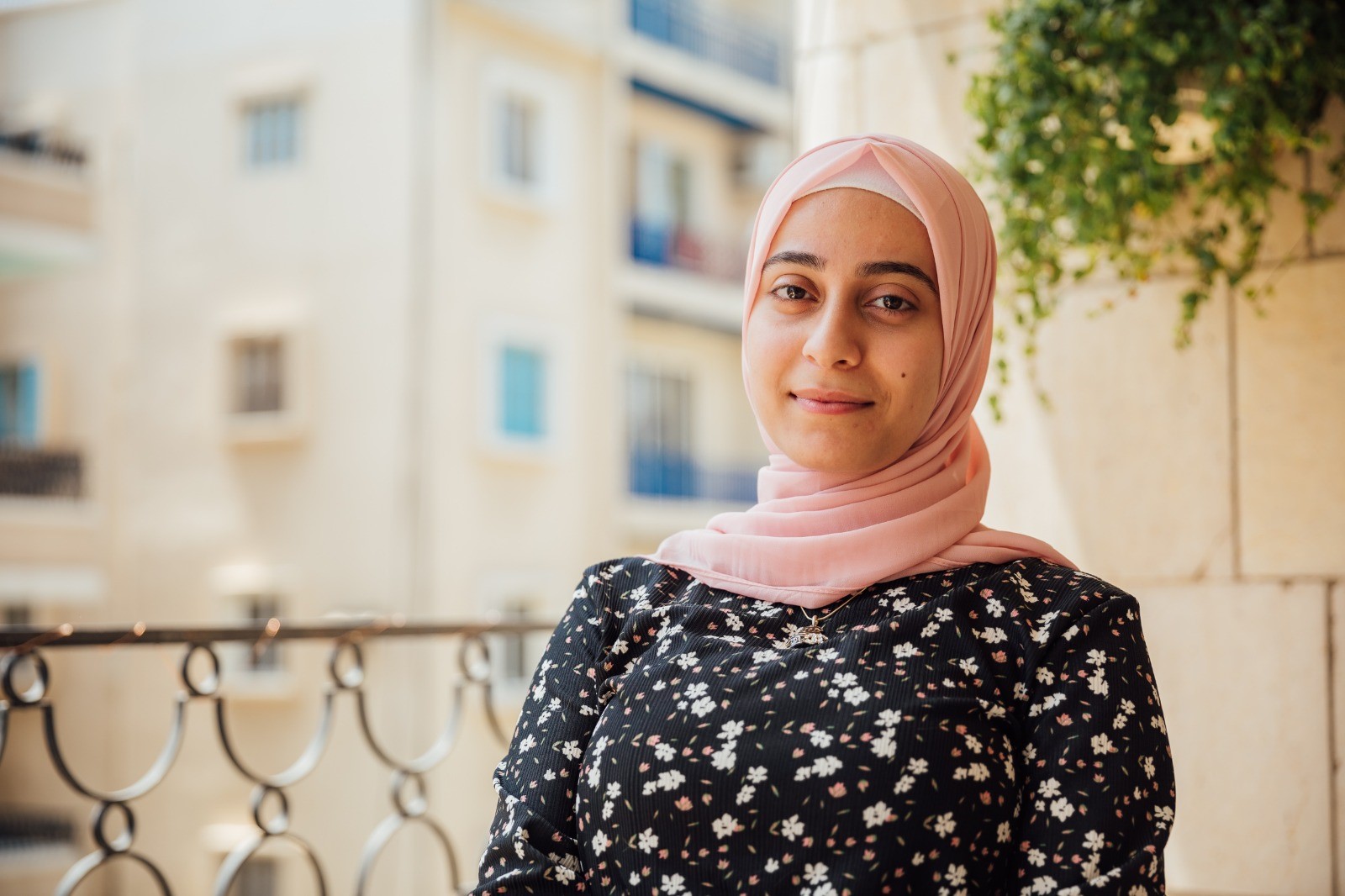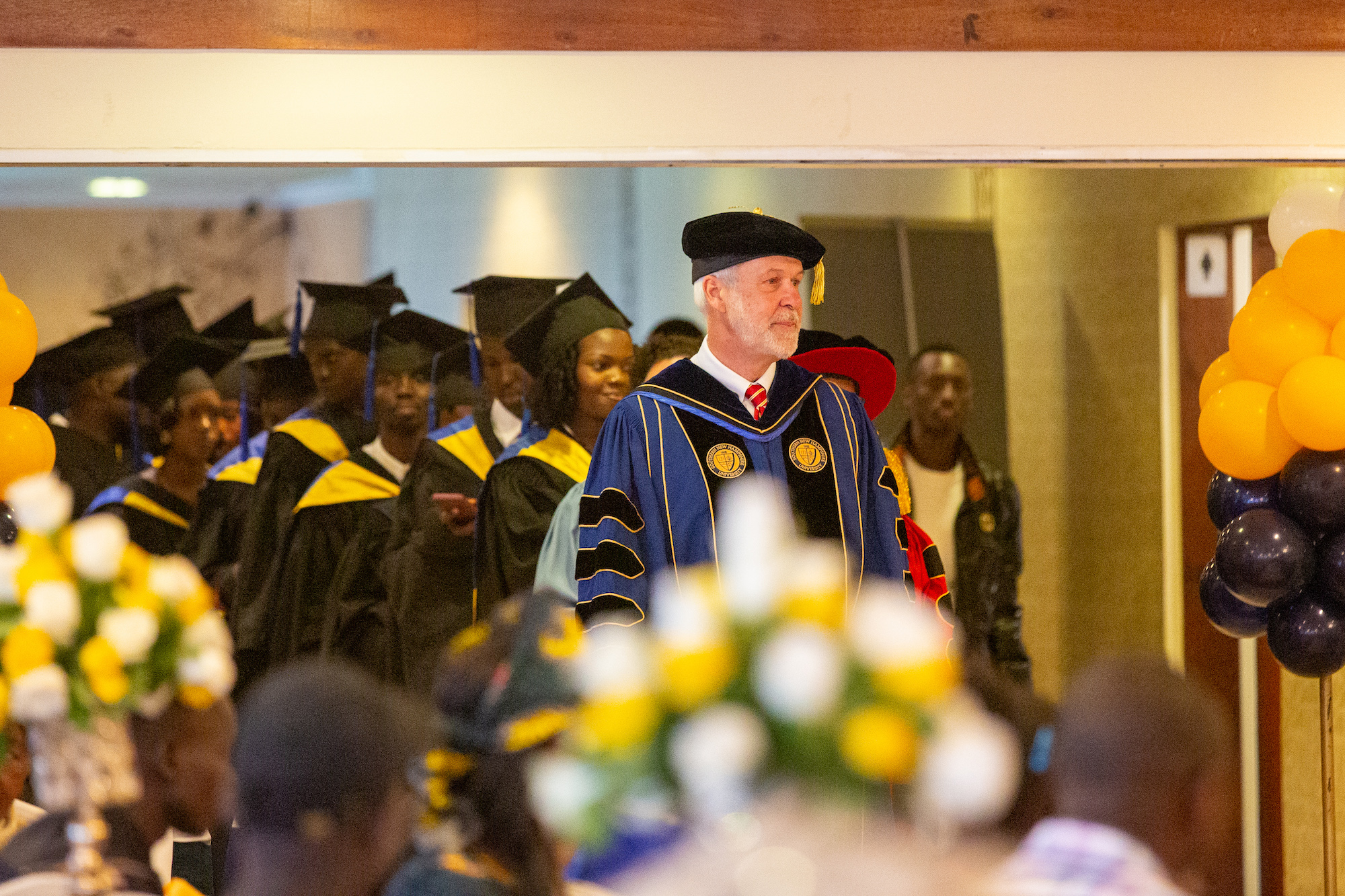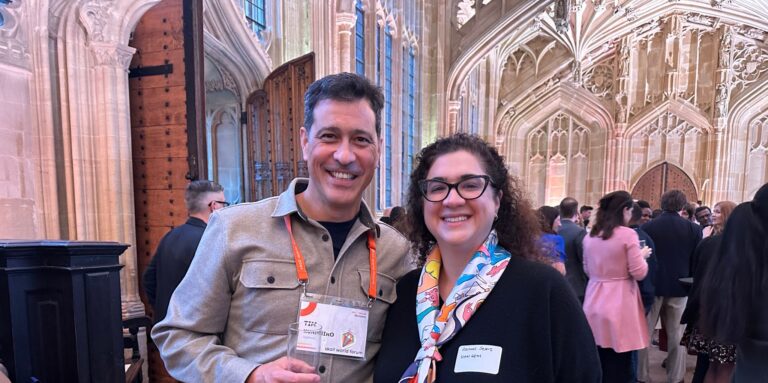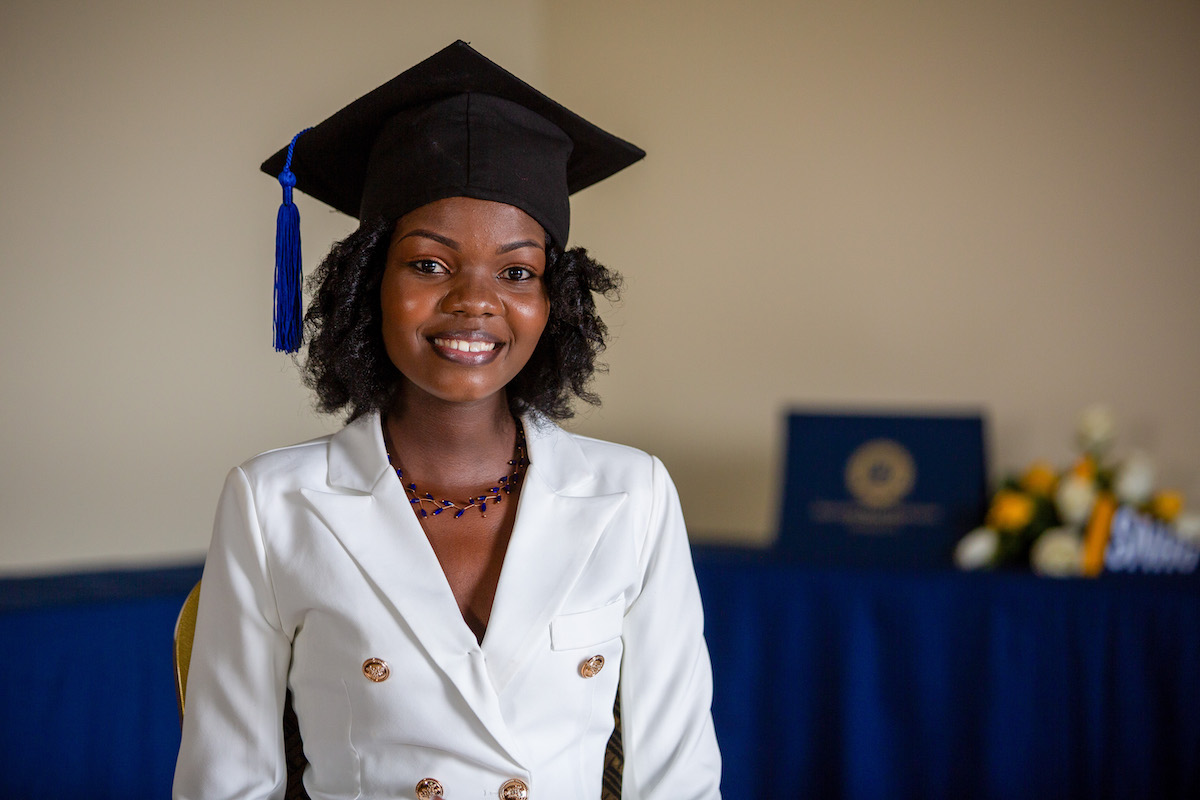SNHU’s President Paul LeBlanc hosts a roundtable for GEM students to share their experiences as displaced people.
Last week, to celebrate World Refugee Day, SNHU President Paul LeBlanc hosted a roundtable event with SNHU Global Education Movement (GEM) students from around the world to talk about their experience as refugee students and the impact they’ve had on their communities. The panelists included SNHU GEM students and recent graduates Mohamed Mohamud, Nour Maaz, and Saida Aden.
Today, SNHU’s GEM program is currently operating in five different countries and has around 1,500 students and 3,500 alumni, according to President LeBlanc. The program has an emphasis on mastering real-world competencies, providing students with extensive feedback as they work on projects to master skills. “It’s not just memorizing random information, but it’s actually doing these projects and making sure you master these competencies,” Mohamud said. He also appreciated that laptops and internet are provided which “is unheard of in the refugee camps.”
Each of the panelists shared their personal experience as a refugee and some common misconceptions. Mohamud pushed against negative labels on refugees, explaining that they “create more pressure and really add more negativity to an already struggling population of people.” Like Mohamud, Maaz does not want her identity to be centered around being a refugee and wishes people would “just treat us as humans.” She is confident that “if they know us more and give us the opportunities, we can even be effective people in the host country.” While Aden has dealt with similar stigmas, she focused on her struggle as a woman refugee, including pressures to prioritize working on domestic chores over schoolwork.
The panelists credited GEM with providing them with the critical skills and networks they needed to succeed in their current positions. “Before starting this, I never dreamed of getting a bachelor’s degree,” Aden said. “I got a lot of experience and knowledge.” For Maaz, education has helped her redefine her refugee status. “[Refugees] can achieve a lot: we can be leaders, we can be entrepreneurs, and we can seek education,” Maaz said. “GEM is helping us prove that.” Mohamud also credited the GEM program: “These are the shining lights, and they’re trying to really push the needle in the right direction. I’m really hopeful for the future.”
All three panelists are already making a lasting impact on their communities. Mohamud is now based in Nairobi, working as a researcher with the University of Oxford Refugee Studies Centre. He is also an elected refugee leader in his camp. He wants to help other refugees and is currently doing a study on refugee organizations in four countries in East Africa, “analyzing them, trying to see how refugee organizations are formed, the impact they have, and how they can be supported.”
Maaz lives in Tripoli, Lebanon where she works for Siriforce, a quality assurance and usability testing agency. She believes she has empowered other women who were also “not allowed to go to school or even study.”
Aden is confident that she has gained the skills so that she “can compete with global jobs and have that career and knowledge to make my future brighter.” She described herself as a role model for other refugees who face the same struggles that she was able to overcome with the help of the GEM program.
All three panelists are confident that their success will inspire and offer hope to those who struggle with the same instability and lack of resources. Mohamud offered hope and inspiration to other refugees: “You are your biggest asset. Everything that you need in this world is within you.”



